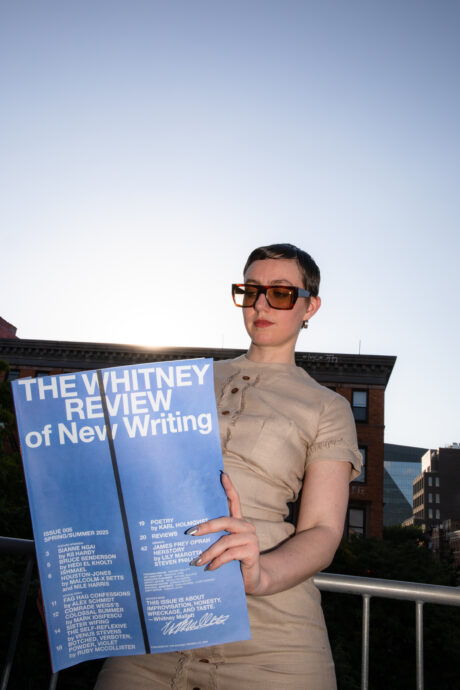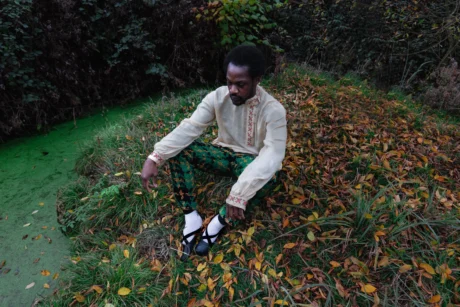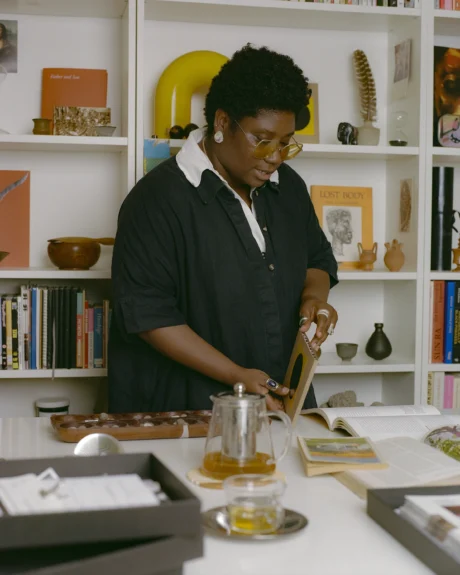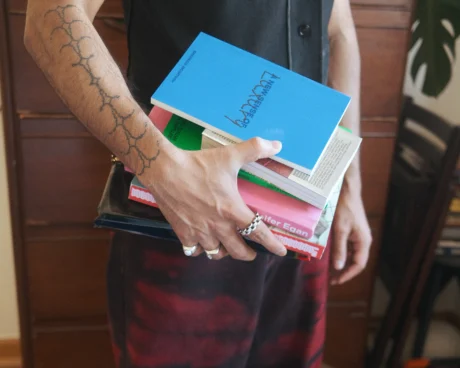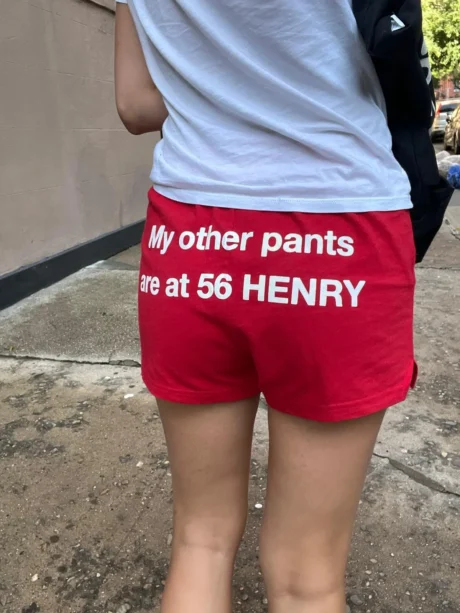Elephant’s Desmond Vincent reports on the artist-led communities re-energising the Lagos art scene.
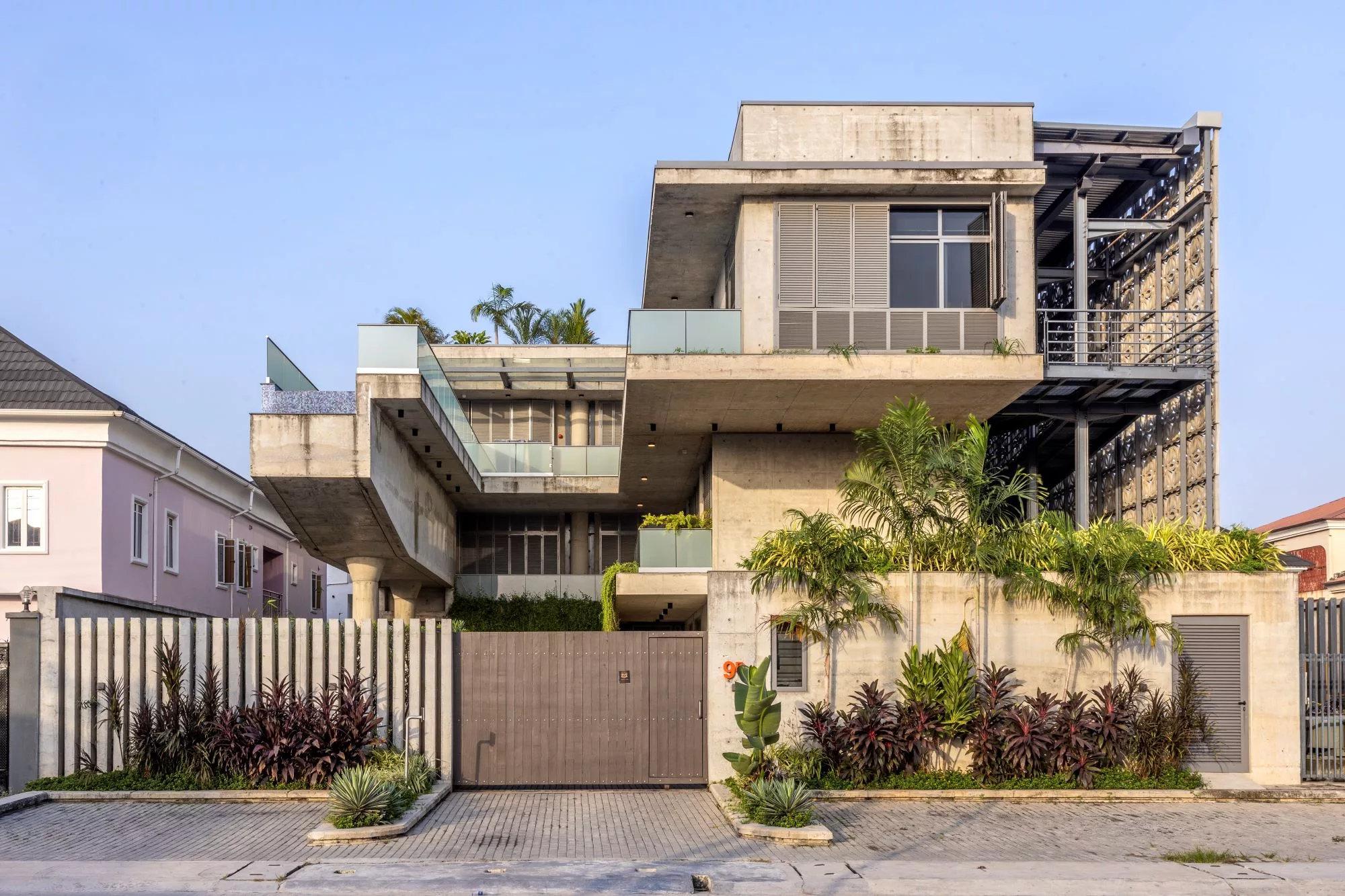
Kadara Enyeasi’s cheekily titled ‘because this must be shown’ remains one of my most memorable highlights from 2023. It’s no small feat that this exhibition has stayed with me for so long as in 2023 I attended more exhibitions in one calendar year than in all of my previous years combined. Enyeasi’s presentation also ran concurrently with the famed Lagos Art Week, which saw the coming together of the most interesting, influential and legendary artists in West Africa. In his exhibition, Kadara explored and expanded on Igbo cosmology, merging his academic history with an exploration that spanned various media. When we spoke, Enyeasi was quick to credit Treehouse, the experimental space he exhibited in, for providing him with a space where he could create without pressure to bend to convention.
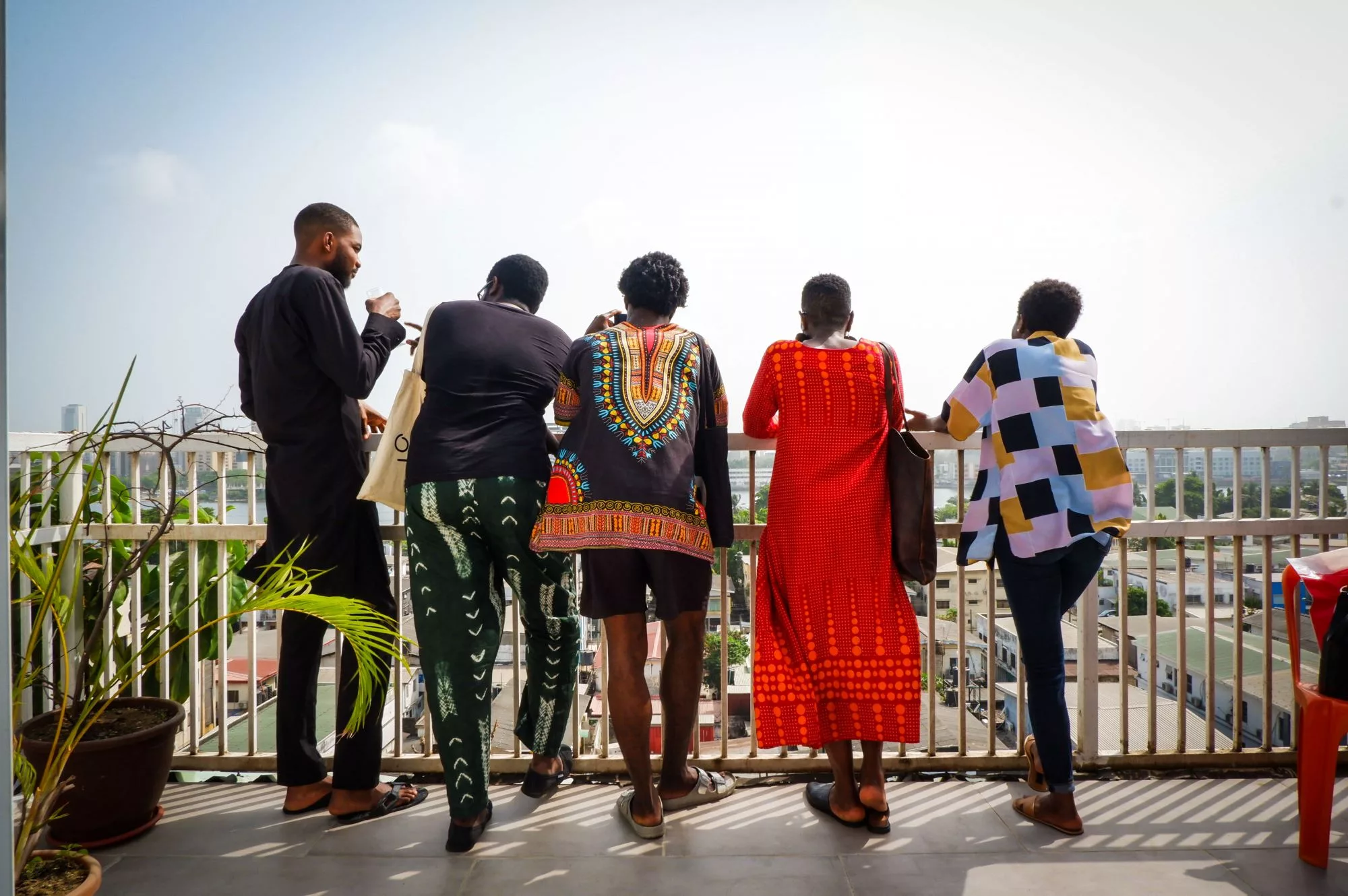
“I wanted to create a space that allowed artists to experiment with materials, space and ideas outside of what most galleries will allow here.” Wura Natasha-Ogunji, artist and the founder of Treehouse, tells Elephant. “The inspiration was a deep frustration with seeing so much homogeneity in the art scene, which I thought was ironic given the way daily life in Nigeria requires so much innovation, experimentation, and creativity. I didn’t see this at all reflected in the work artists were making.”
Treehouse is one of the artist-led spaces in Lagos working to use collaboration and creativity to create structure in Lagos’ burgeoning art community. As interest in African art, traditional and digital alike, grows and a new crop of artists in Lagos establish themselves locally and internationally, there is increased pressure for artists to commercialise their work and capitalise on the moment.
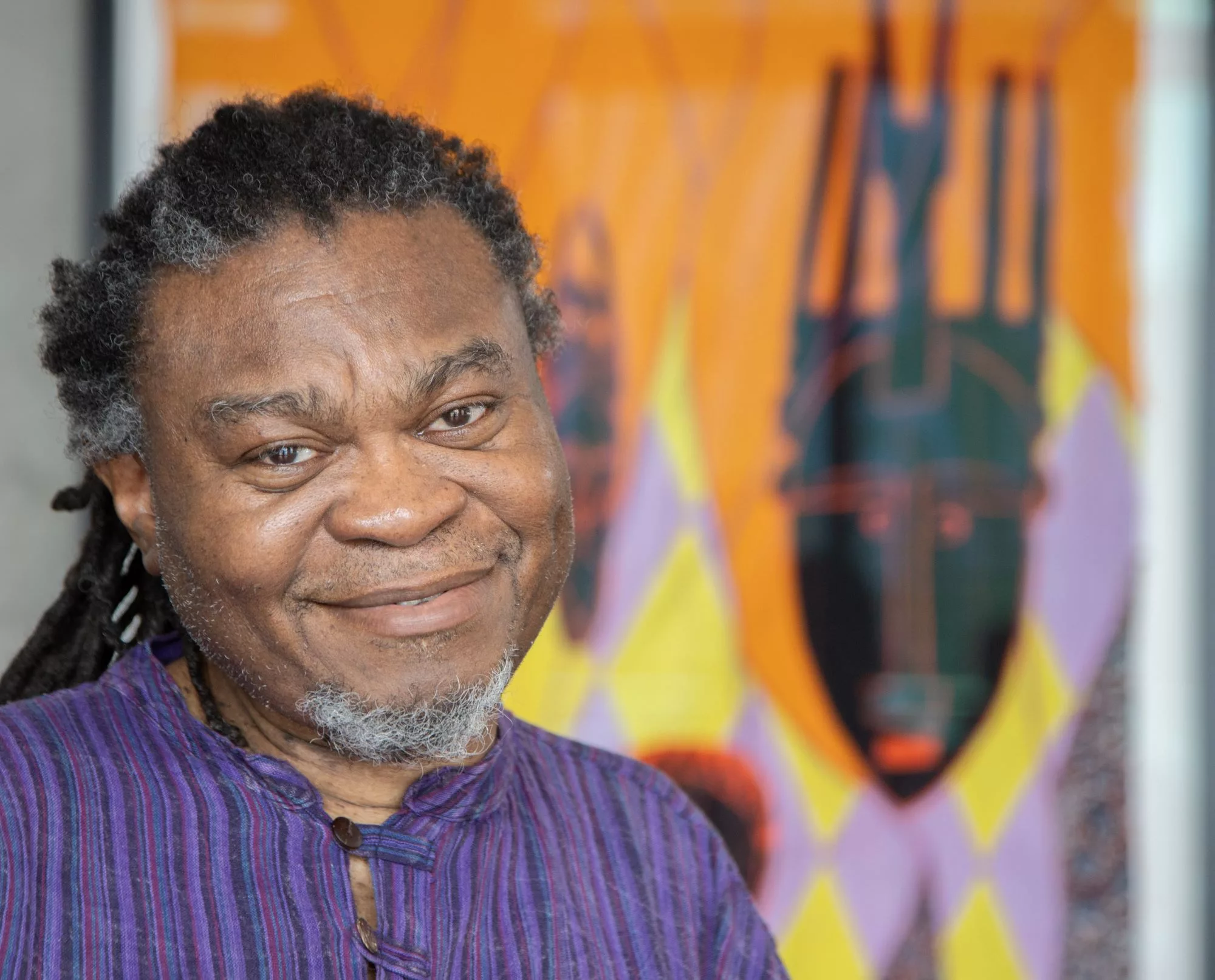
Before interdisciplinary artist Yinka Shonibare CBE RA founded Guest Artists Space (G.A.S.) Foundation, he had imagined that what he would build in Lagos would be a ‘world-class international contemporary art museum.’ However, it became apparent that this wasn’t what the ecosystem needed at the time. “I quickly realised that there simply was not yet the infrastructure and enough of the skilled people needed to run a sustainable institution,” Shonibare explains. “I needed to start at a more grassroots level, much like in London when I opened Guest Projects. It’s encouraging to see that since then, things have evolved both in Nigeria and the wider West African region despite the limited state support, but there is still some way to go. For me, it was really important to create something that actively encouraged cultural exchange, career development, and learning opportunities, which I hope will, in turn, promote infrastructure development within the local arts and culture ecosystem.”
Similarly, in 2018, Visual artist and writer Victor Ehikhamenor launched Angel and Muses, in his own words, to ‘cater to emerging and mid-career artists, curators, writers, architects, and other multidisciplinary creatives in Nigeria, eventually extending its reach to encompass Africa and its diaspora.’
Ehikhamenor lets me know that setting up a space like Angels and Muses is not new to the Nigerian art scene, infact he is learning from the Nigerian artists that came before him. “Some of the modernist Nigerian artists I admire have, in the past, set up creative spaces for fellow artists. Spaces like Uche Okeke’s Adele Institute, Bruce Onobrakpeya’s Harmattan Workshop and Demas Nwoko’s New Culture Center.” Ehikhamenor shares. “When I realised such traditions seemed to be waning in our echo system, I created Angels and Muse. Throughout my experience as an artist, I also quickly recognised the significance of external support, networking, and knowledge exchange in fostering artistic growth, which had become void in the Nigerian art sector that needed to be addressed.”
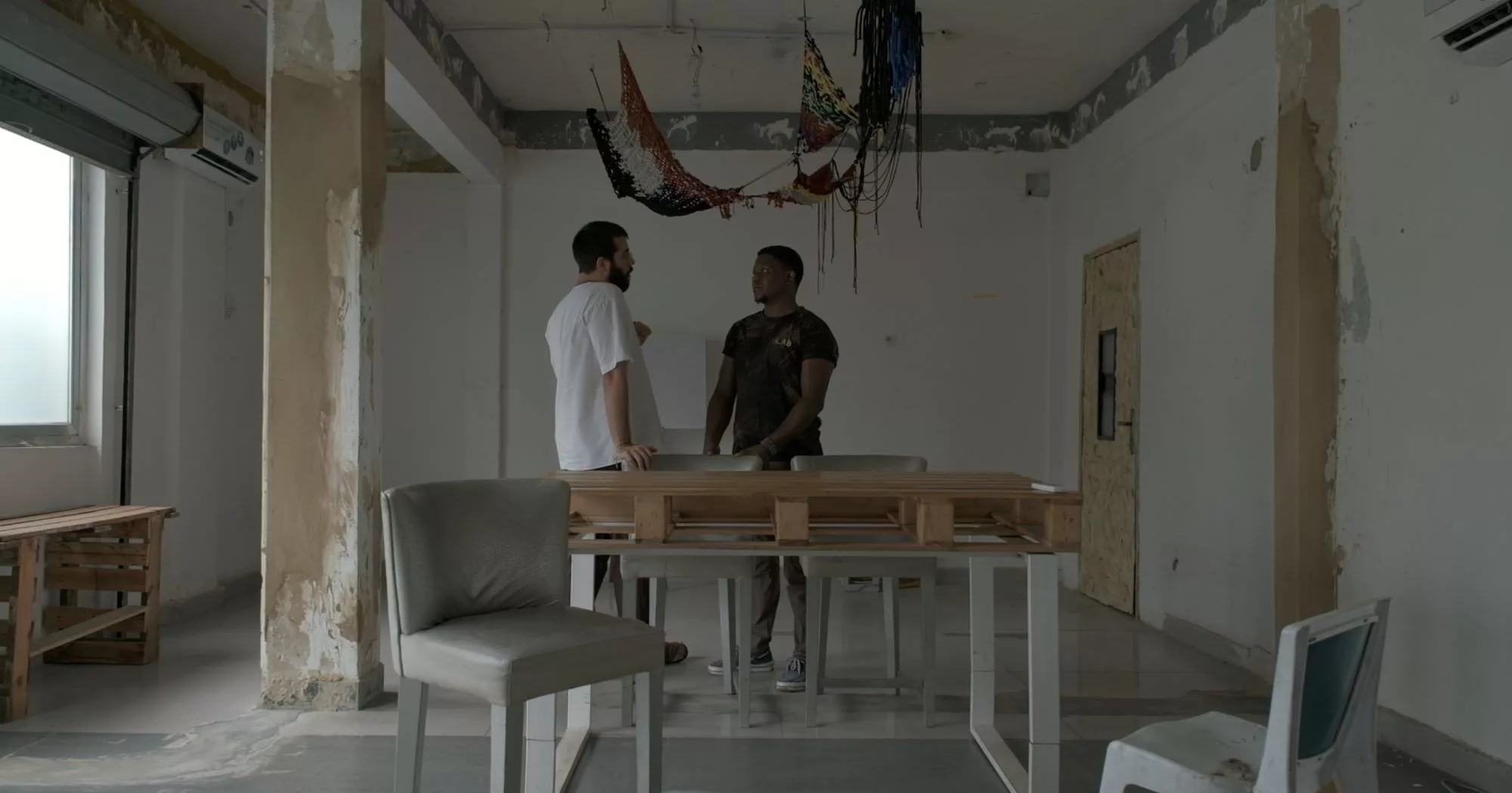
Today, six years after its founding, Angels and Muse has established itself as one of the most integral creative hubs in this part of the world – Ehikhamenor points to Dr. Ike Anya, their first resident whose book Small by Small has been published while writer Chimamanda Ngozi Adichie announced her foundation at a talk at the non-profit. Elsewhere, I imagine that artists that call it home love and cherish the space. We’re also not prescribing how you need to interact with the space – you can come to sit down and do nothing for hours except stare at one of the plants, or you can get a drink by the bar, or you can get a room, and the list goes on and on. It’s a place for possibility, and I can imagine for an artist, that’s one of the most valuable things you can get when building yourself.”
While Angels and Muse has a firmer structure with residences and programs, spaces like 16/16 exist outside these lines and pride themselves on their non-conventional approach to supporting artists. Tushar Hathi, one of the founders of 16/16 and the collective hFactor, says, “16/16 is non-conventional. We love intentional engagement. Even though we’re a space for wandering and wondering, we love people that come in knowing what they want and engage us towards that end.” Hathi explains. “Artists that call it home tend to love it. We’re also not prescribing how you need to interact with the space – you can come sit down and do nothing for hours except stare at one of the plants, or you can get a drink by the bar, or you can get a room, and the list goes on and on. It’s a place for possibility, and I can imagine for an artist, that’s one of the most valuable things you can get when building yourself.”
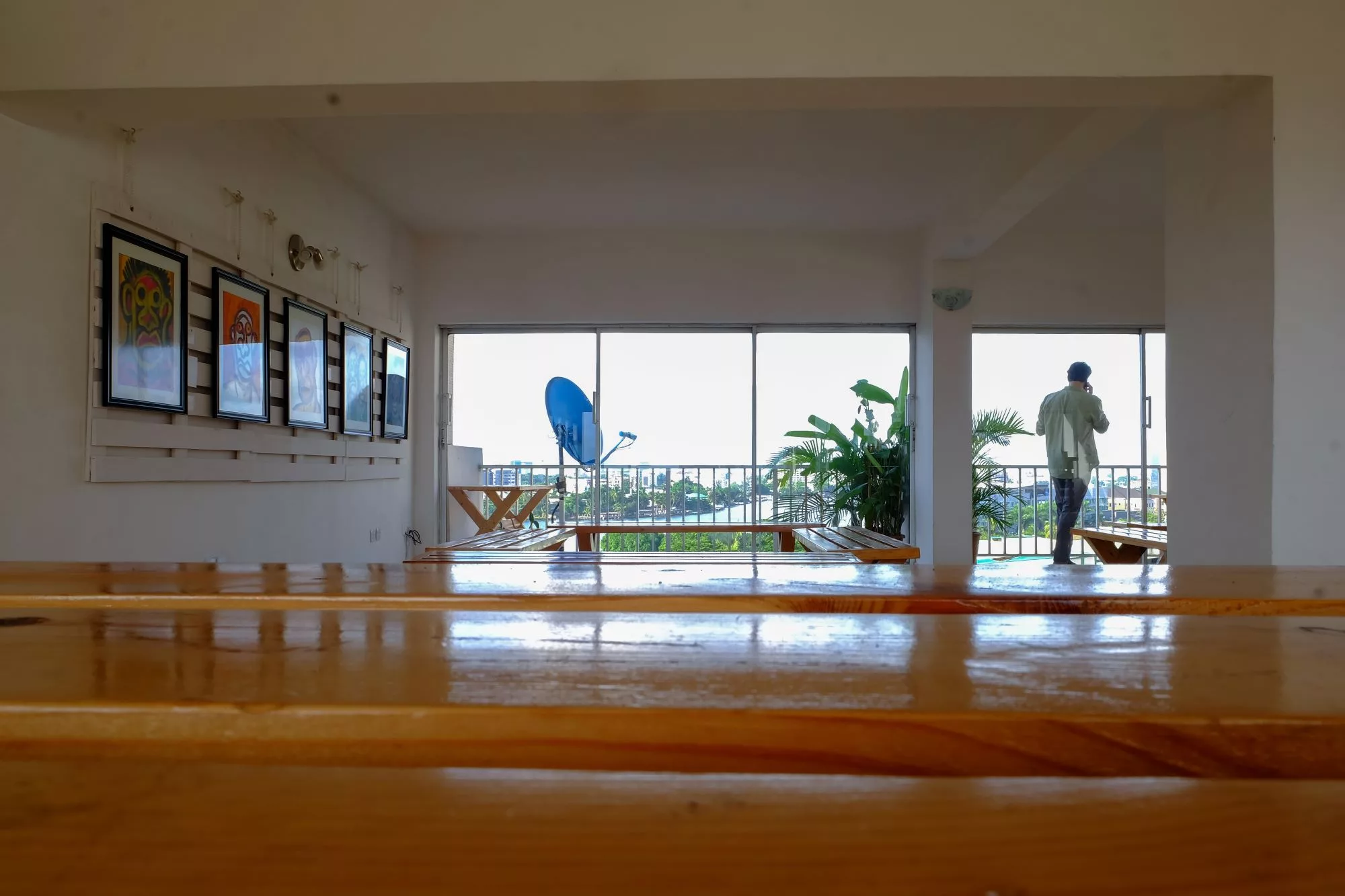
These spaces are garnering organic and compounding momentum by word of mouth among artists and art enthusiasts in the city however like many things in the art ecosystem, it still lacks the support from traditional funding bodies it needs to truly thrive. Regardless, for these founders support looks different depending on who you ask.
For Ogunji, that support looks like “supporting the vision of artists. Listen to artists. Stop asking for discounts when you buy the work of artists. Honour, respect and value the journey of artists. We make life so delicious.” Ehikhamenor shares, “There are multiple avenues for which patrons and creatives may offer support. This support includes offering knowledge-sharing opportunities from older artists. Young artists and writers can benefit from workshops and master classes offered by the experiences. It takes a lot of financial effort to run a space like Angels and Muse, so donations and grants go a long way in fostering our programs. Now that we have expanded to Benin City with our ultra-modern facility that can house and support about fifteen artists at a time, financial contributions catering to specific programmes or all initiatives are much needed.”
Written by Desmond Vincent
